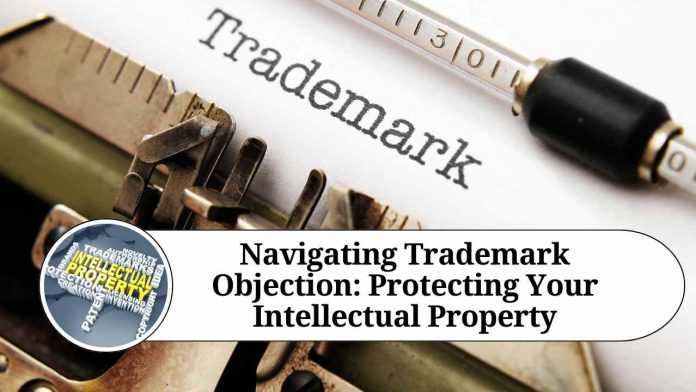Introduction
In today’s fast-paced and competitive business world, protecting intellectual property has become more crucial than ever. A trademark serves as a valuable asset for businesses, representing their brand identity and distinguishing their products or services from competitors. However, the process of obtaining a trademark registration can encounter hurdles, with one of the most common challenges being a trademark objection. In this blog post, we will explore what trademark objection entails, why it happens, and how businesses can navigate this process to safeguard their intellectual property rights.
Understanding Trademark Objection:
A trademark objection refers to a formal objection raised by a trademark examiner or a third party against the registration of a particular trademark. The objection usually occurs during the examination phase of the trademark registration process. The purpose of a trademark objection is to identify any potential conflicts or violations of existing trademarks, regulations, or legal provisions.
Reasons for Trademark Objection:
- Similarity to existing trademarks: One of the primary reasons for a trademark objection is when the proposed mark is similar to an already registered or pending trademark. This similarity can lead to confusion among consumers or dilute the distinctiveness of an existing mark.
- Descriptiveness: Trademarks that are generic or merely descriptive of the goods or services they represent may face objection. A trademark should be distinctive and capable of distinguishing the source of the products or services.
- Prohibited or offensive content: Trademarks containing prohibited or offensive content, such as religiously sensitive terms, racial slurs, or obscene words, can face objections based on moral, ethical, or legal grounds.
- Deceptive marks: If a trademark is likely to deceive or mislead consumers regarding the nature, quality, or origin of the goods or services, it may face an objection.
Navigating Trademark Objection:
- Careful research and selection: Conducting a comprehensive trademark search before filing an application can help identify potential conflicts. By conducting due diligence, businesses can minimize the risk of objection and select a unique and distinctive mark that aligns with their brand identity.
- Consultation with experts: Seeking guidance from intellectual property attorneys or trademark professionals can significantly aid in understanding the nuances of trademark law and the objection process. These experts can provide valuable insights, conduct thorough searches, and assist in crafting a robust response to overcome objections.
- Preparing a strong response: If a trademark objection is received, it is essential to respond promptly and with a well-reasoned argument. The response should address each objection raised by the examiner or third party and provide evidence or legal arguments supporting the distinctiveness and non-infringing nature of the proposed mark.
- Negotiation and compromise: In some cases, negotiation with the objecting party can help resolve the objection. This may involve making modifications to the proposed mark, reaching a coexistence agreement, or providing additional evidence to demonstrate the mark’s uniqueness.
- Appealing the decision: If efforts to overcome objections at the examination stage prove unsuccessful, businesses have the option to file an appeal before the appropriate trademark authorities or courts. The appeals process allows for a reevaluation of the objection and presents an opportunity to present a stronger case.
Conclusion
Trademark objection can be a challenging hurdle to overcome during the trademark registration process. However, by conducting thorough research, seeking expert advice, and responding with a well-prepared argument, businesses can increase their chances of successfully navigating the objection process. Protecting intellectual property rights is crucial for establishing a strong brand identity and ensuring a competitive advantage in today’s marketplace.
Other Related Blogs: Section 144B Income Tax Act
Frequently Asked Questions (FAQs)
Q. What is a trademark objection?
A trademark objection refers to a formal objection raised by a trademark examiner or a third party against the registration of a particular trademark. It occurs during the examination phase of the trademark registration process and aims to identify any potential conflicts or violations of existing trademarks, regulations, or legal provisions.
Q. Why would my trademark face an objection?
There are several reasons why a trademark may face an objection:
Similarity to existing trademarks: If your proposed mark is similar to an already registered or pending trademark, it can lead to confusion among consumers or dilute the distinctiveness of an existing mark.
Descriptiveness: Trademarks that are generic or merely descriptive of the goods or services they represent may face objection. A trademark should be distinctive and capable of distinguishing the source of the products or services.
Prohibited or offensive content: Trademarks containing prohibited or offensive content, such as religiously sensitive terms, racial slurs, or obscene words, can face objections based on moral, ethical, or legal grounds.
Deceptive marks: If a trademark is likely to deceive or mislead consumers regarding the nature, quality, or origin of the goods or services, it may face an objection.
Q. What should I do if I receive a trademark objection?
If you receive a trademark objection, it is crucial to respond promptly and appropriately. Consult with intellectual property attorneys or trademark professionals who can guide you through the process. Prepare a strong response that addresses each objection raised, providing evidence or legal arguments supporting the distinctiveness and non-infringing nature of your proposed mark.
Q. Can I overcome a trademark objection?
Yes, it is possible to overcome a trademark objection. By conducting thorough research before filing your application, seeking expert advice, and responding with a well-prepared argument, you can increase your chances of successfully navigating the objection process. It may also involve negotiating with the objecting party or appealing the decision if necessary.
Q. What happens if I don’t respond to a trademark objection?
If you fail to respond to a trademark objection within the specified timeframe, your application may be abandoned or rejected. It is essential to understand the deadlines and requirements for response and take appropriate action to avoid losing your trademark registration opportunity.
Q. How long does it take to resolve a trademark objection?
The time required to resolve a trademark objection can vary. It depends on factors such as the complexity of the objections raised, the workload of the trademark authorities, and any negotiations or appeals involved. Generally, the resolution process can range from a few months to a year or more.
Q. Can I appeal a trademark objection decision?
Yes, if efforts to overcome objections at the examination stage prove unsuccessful, you have the option to file an appeal before the appropriate trademark authorities or courts. The appeals process allows for a reevaluation of the objection and presents an opportunity to present a stronger case.
Q. Should I consult an attorney for a trademark objection?
Consulting an attorney or trademark professional experienced in intellectual property law is highly recommended. They can provide valuable guidance, conduct thorough searches, help you understand the objection process, and assist in preparing a strong response to overcome objections.




















